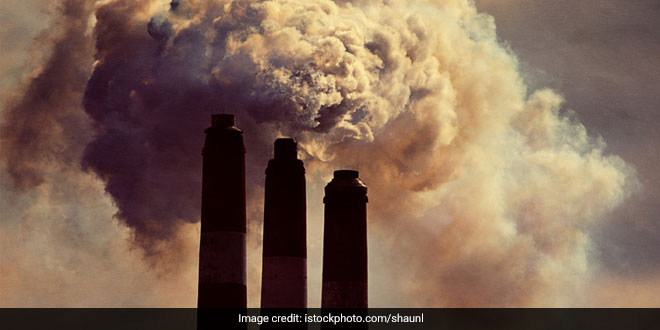Washington D.C.: A transition from coal-based energy to cleaner burning gas would benefit the climate, a study has claimed. The research was published in Nature Climate Change. Focusing on the world’s leading power generators- China, Germany, India, and the United States- the study examined the impacts from a variety of direct and indirect emissions of such a shift on both shorter and longer timescales ranging from a few decades to a century. Katsumasa Tanaka, a senior climate risk researcher at the National Institute for Environmental Studies in Japan, said,
Many previous studies were somewhat ambivalent about the climate benefits of the coal-to-gas shift. Our study makes a stronger case for the climate benefits that would result from this energy transition because we carefully chose metrics to evaluate the climate impacts in light of recent advances in understanding metrics. Given the current political situation, we deliver a much-needed message to help facilitate the energy shift away from coal under the Paris Agreement. However, natural gas is not an end goal; we regard it as a bridge fuel toward more sustainable forms of energy in the long run as we move toward decarbonisation.
Also Read: Renewable Energy: Solar Power To Light Up 13 Schools And A University In Rural Punjab
Concerns about methane leakage from natural gas have been intensely debated, particularly in the United States given the increasing use of fracking over the past decade. Recent scientific efforts have improved understanding of the extent of methane leakage in the United States, but the potential impacts of methane leakage remain highly uncertain in the rest of the world. Professor Tanaka said,
Our conclusion that the benefits of natural gas outweigh the possible risks is robust under a broad range of methane leakage, and under uncertainties in emissions data and metrics.
Emissions metrics, or indicators to evaluate the impacts of climate change from a variety of emission types, are useful tools to gain insights into climate impacts without the need for climate model runs.
These metrics work like weighting factors when calculating CO2-equivalent emissions from the emissions of a variety of greenhouse gases. However, the resulting climate impacts observed through CO2-equivalent emissions are sensitive to the specific metrics are chosen. Francesco Cherubini, a researcher, said,
Because the outcome can strongly depend on which metrics are chosen and applied, there is a need for careful reflection about the meaning and implications of each specific choice. Each emission type elicits a different climate system response. The diverging outcomes in previous studies may well stem from the type of metric that was chosen.
The study combined multiple metrics to address both short- and long-term climate impacts in parallel. It was found that natural gas power plants have both smaller short- and long-term impacts than coal power plants, even when high potential methane leakage rates, a full array of greenhouse gases and air pollutants, or uncertainty issues are considered. Otavio Cavalett, a colleague of Professor Cherubini, said,
Our study uses a set of metrics jointly, unlike many studies using just one, to consider climate impacts on different time scales–one metric for a few decades and another one for approximately a century. This allowed us to consider the host of pollutants that can affect the climate on different time scales.
The authors’ choice of metrics aligned with recent recommendations by the United Nations Environmental Programme and the Society of Environmental Toxicology and Chemistry. It is the first application of such recommendations to the coal-to-gas debate. To ensure that possible regional differences were accounted for in the global study, the study compared global metrics with regional metrics to more precisely examine impacts. Bill Collins, a professor, said,
We considered a suite of so-called short-lived climate pollutants (SLCPs), such as SOx, NOx, please add full form and black carbon that can be emitted from these plants. This required a regional analysis because climate impacts from SLCPs depend on where they are emitted, due to their short lifetimes in the atmosphere.
The study by Profesor Tanaka and co-authors is part of a growing body of literature that reaffirms the need to phase out coal in order to mitigate rising global temperatures and slow or reverse negative impacts of climate change.
Future related work could consider supply chains and trade within and across nations and other environmental factors, in addition to work on improving the consistency of metrics for evaluating climate impacts. Professor Tanaka, said,
Air quality is not part of our analysis, but including it would likely strengthen our conclusion. Other environmental effects, such as drinking water contamination and induced seismic activities, could also add important dimensions to the debate.
NDTV – Dettol Banega Swachh India campaign lends support to the Government of India’s Swachh Bharat Mission (SBM). Helmed by Campaign Ambassador Amitabh Bachchan, the campaign aims to spread awareness about hygiene and sanitation, the importance of building toilets and making India open defecation free (ODF) by October 2019, a target set by Prime Minister Narendra Modi, when he launched Swachh Bharat Abhiyan in 2014. Over the years, the campaign has widened its scope to cover issues like air pollution, waste management, plastic ban, manual scavenging and menstrual hygiene. The campaign has also focused extensively on marine pollution, clean Ganga Project and rejuvenation of Yamuna, two of India’s major river bodies.




























